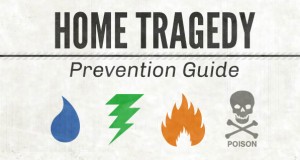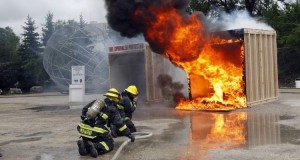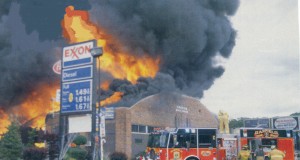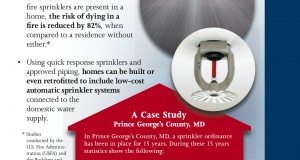We’ve got to stop ignoring the “elephant in the room” when it comes to fires in the United States, particularly in residential properties: we live in a culture that accepts that fires happen, fires kill and injure people, and fires destroy property.
Read More »Tag Archives: fire codes
A New Stop Fires Paradigm
Why do we keep building homes and installing appliances and furnishings that don't keep fires from starting and spreading? A new stop fires paradigm is needed to eliminate preventable fires in the USA. We've made safer cars for years, why not safer homes?
Read More »America’s Continued Addiction to Fire Suppression
Sound rather harsh? Sound unrealistic? So does closing fire stations and laying off firefighters. So does continuing to expose firefighters to increasing levels of risk of injury or death because of negligence on the part of building occupants, developers, and builders. So does continuing to increase the fiscal burden to local taxpayers to pay for an antiquated fire protection model that is reactive rather than proactive. Fire service leaders keep saying that we need to "think outside of the box" and make better use of technology, but more increasingly expensive technology that supports the "wrong" model is not the answer. I believe that the only way to change the outcome is to change the culture.
Read More »Revisiting: “Thinking Outside the Box” for Fire Protection in the USA
Sound rather harsh? Sound unrealistic? So does closing fire stations and laying off firefighters. So does continuing to expose firefighters to increasing levels of risk of injury or death because of negligence on the part of building occupants, developers, and builders. So does continuing to increase the fiscal burden to local taxpayers to pay for an antiquated fire protection model that is reactive rather than proactive.
Read More »Tampa II: Food-for-Thought 4 “Get Away Day”
I'm confident that the issue of fire prevention has been discussed at length as it should be: if no fire occurs or it's extinguished by an installed fire sprinkler no firefighter need be injured or killed in the line-of-duty. So here's my blog repost for your and those folks at Tampa 2 on "get away day", Children Don’t Cause Fires, Adults Do
Read More »Children Don’t Cause Fires, Adults Do
The behaviors of adults in the USA account for 78 percent of the preventable residential fires. So why do the vast majority of fire prevention educations that Fire and EMS departments deliver each year target children? If we’re looking to significantly reduce the following types of fires, why don’t our programs focus on adult behaviors?
Read More »Businesses and Fire
I think the topic of what the REAL impact of a fire WILL be on even a large business, but particularly a small business, is vastly understated in our business. I heard a statistic early in my career that has always stuck with me--70 percent of businesses will either never reopen, or will fail within 5 years.
Read More »Stopping Food-on-the-Stove Fires with a Team Approach
Many developers and builders may not be aware that they can obtain up to 5 DCA Websitepoints—as part of their Development Design Criteria—when they include HEHLT on the electric ranges for their project.
Read More »Accepting Change to Link the “3-E’s” of Fire Prevention
One such example is the web-based inspection report management system movement. Using a web-based, or “cloud” platform, these systems are opening up solutions for service providers and local government.
Read More »A New Direction for Fire Protection in the USA
Why do we continue to "hold on to" a fire protection model that is "overloaded" with risk and expensive to operate? There is a better way, but it's a way that requires a fundamental shift in responsibility in our society: the individual is responsible for not having a fire, rather than the locality is responsible for putting out a fire when it occurs. Fire service leaders and local political leaders need to "re-engineer" the fire protection model for their communities using the "Three E's": Engineering, Education, and Enforcement.
Read More » Fire & EMS Leader Pro The job of old firefighters is to teach young firefighters how to become old firefighters!
Fire & EMS Leader Pro The job of old firefighters is to teach young firefighters how to become old firefighters!





